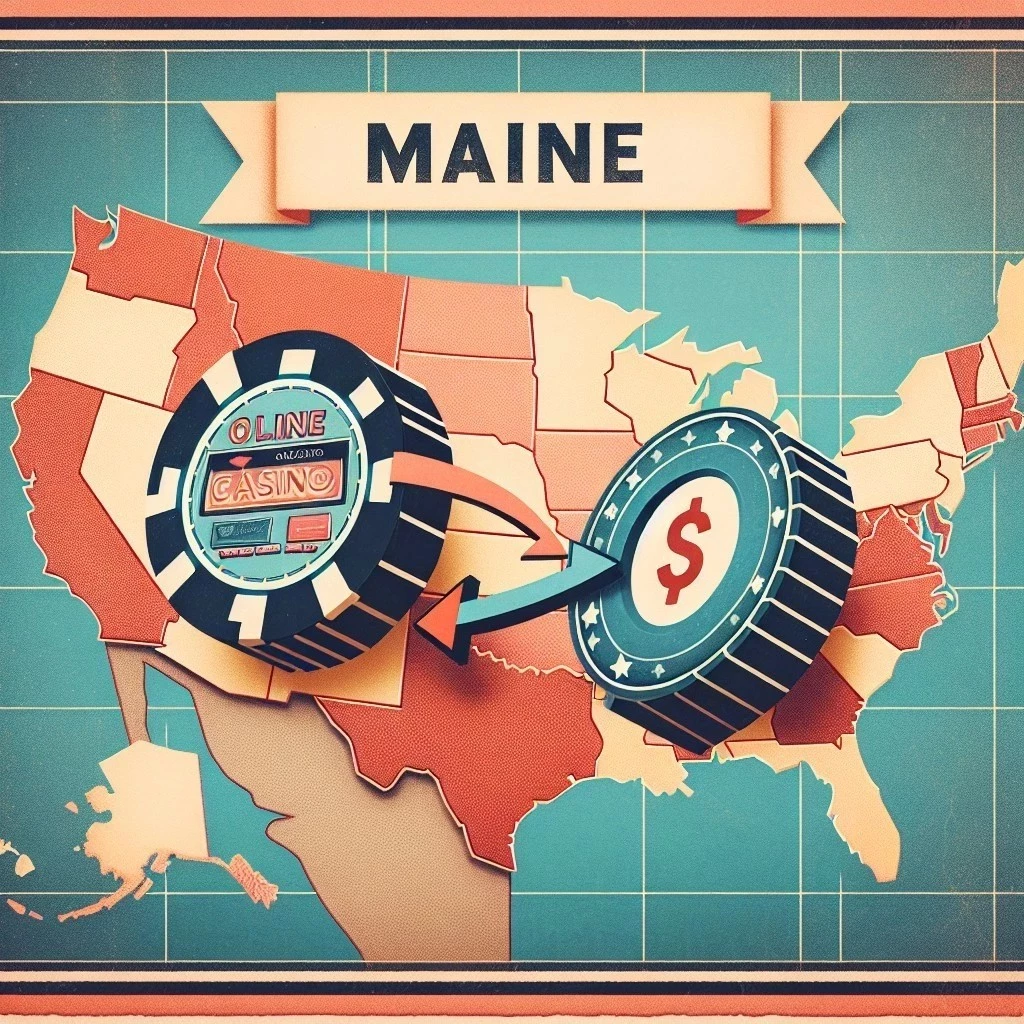Discover why Maine and Arkansas struggle with online casino legalization. Explore the clash of policies, public opinion, and politics in this gaming saga.
Efforts to Legalize Online Casino Gambling in Maine and Arkansas Face Setbacks
Wellcome Offer:
200% up to $2,000
+ 100 Free Spins
The winnings from your free spins will be credited as bonus funds. Exclusively available for new players with fair wagering requirements.
Wellcome Offer:
250% Bonus up to $5,000
+ 100 Free Spins
Claim your bonus and spin your way to big wins! Minimum deposit of $20 required. Wagering requirements apply. Bonus valid for 30 days.
Get up to:
100% up to $1,000
+ 300 Free Spins
You need to deposit at least $25 to be eligible for this bonus. The maximum amount of money you can withdraw from this bonus is limited to $20,000 or 10-times.
Welcome Package:
500% up to $5,000
+ 250% on your 2nd and 3rd deposits
This welcome package rewards new players across their first three deposits. A minimum deposit of $25 applies, with a wagering requirement of 60x before withdrawals.
Wellcome Offer:
250% up to $1,500
+ 100 free spins
Whether you prefer generous deposit bonuses or a bundle of free spins, Cafe Casino’s welcome offer has everything you need to enhance your gaming adventure.
Wellcome Offer:
500% bonus up to $7,500
+ 150 free spins
If you're after big deposit bonuses or a load of free spins, Ducky Luck Casino’s welcome package sets the stage for an exciting gaming adventure.
Welcome Offer:
200% up to $2,000
+ 100 Free Spins
This welcome package combines a deposit match with free spins, giving new players a powerful way to kick off their VoltageBet journey.
Wellcome Offer:
200% up to $1,000
+ 30 free spins
Lovers of slot games and those looking to boost their deposit will find Slots LV Casino’s welcome offer the perfect way to jumpstart their gaming journey.
Wellcome Offer:
200% up to $500
+ Free Spins
Terms typically include standard wagering requirements and a limited validity period. Offers vary by deposit method and player eligibility.
Wellcome Offer:
250% up to $1,500
+ 50 Free Spins
All winnings from free spins are credited as bonus funds, with fair wagering requirements. Exclusive to new players.
The recent efforts to legalize online casino gambling in the states of Maine and Arkansas have faced significant setbacks. Despite the potential economic benefits and a growing trend toward online gaming‚ the legislation efforts have not succeeded‚ highlighting the complex interplay between state government policies‚ public opinion‚ and political decisions.
Background of Gambling Legislation
The push for legalizing online casinos is part of a broader movement to expand gambling options across the United States. However‚ each state has the authority to regulate gambling within its borders‚ leading to diverse legal frameworks and policies. In Maine and Arkansas‚ the road to legalization has been fraught with challenges.
Maine’s Legislative Efforts
In Maine‚ legislators proposed a bill to regulate and authorize online casinos‚ aiming to bring the state in line with others that have benefited from the economic impact of legalized online gaming. The bill sought to establish a gaming commission responsible for oversight and regulation. Proponents argued that legalizing online casinos could generate significant tax revenue and create jobs. However‚ the proposal faced opposition due to concerns about potential social consequences and the adequacy of regulatory measures.
Arkansas’ Betting Legislation
Similarly‚ Arkansas explored options to expand its casino industry through online platforms. The state aimed to craft a policy that balanced economic incentives with responsible betting practices. Despite these intentions‚ the proposal was met with resistance from various stakeholders‚ including religious groups and some political figures‚ who were wary of the implications for the community.

Key Challenges and Public Opinion
Both states encountered significant obstacles in the form of public opinion and political resistance. In Maine‚ surveys indicated a divided populace‚ with many citizens concerned about gambling addiction and the potential erosion of community values. In Arkansas‚ voter response suggested a similar split‚ with a substantial portion of the population expressing skepticism about the benefits of online gambling.
Regulatory and Policy Concerns
A critical issue for both states was the development of a robust regulatory framework that could address concerns about fair play‚ security‚ and ethical considerations. Lawmakers struggled to create a policy that satisfied all parties while ensuring the integrity and oversight of online gaming operations.
Economic and Political Implications
The failure to pass online casino legislation in Maine and Arkansas has broader implications for the states’ economies and political landscapes. The potential for increased tax revenue and job creation remains unrealized‚ and the political decision to halt these initiatives reflects a cautious approach to gambling expansion. Moreover‚ the outcome may influence future legislative efforts and the strategies employed by state government officials.

























